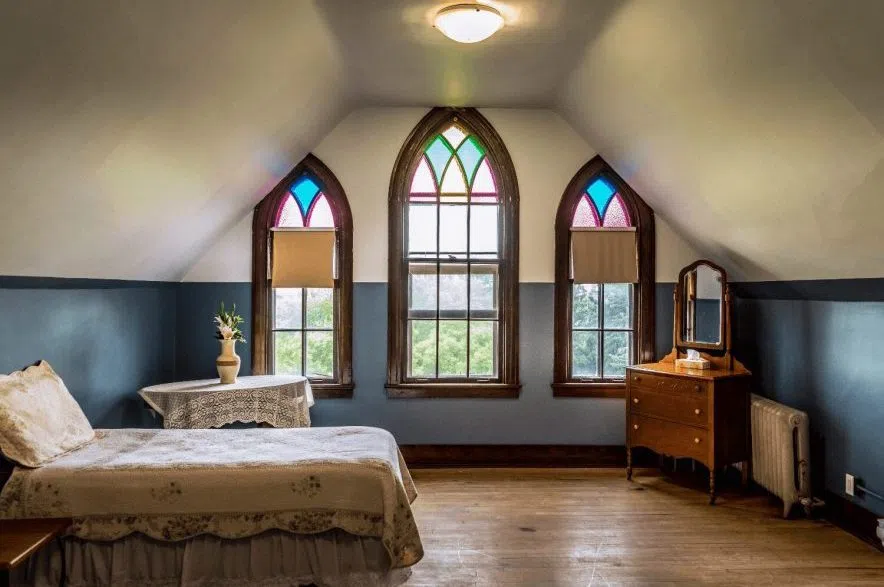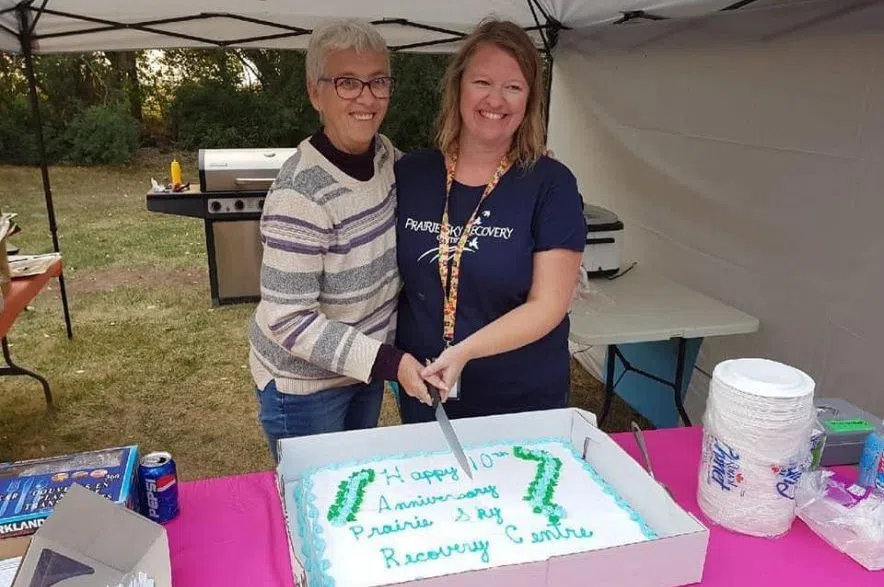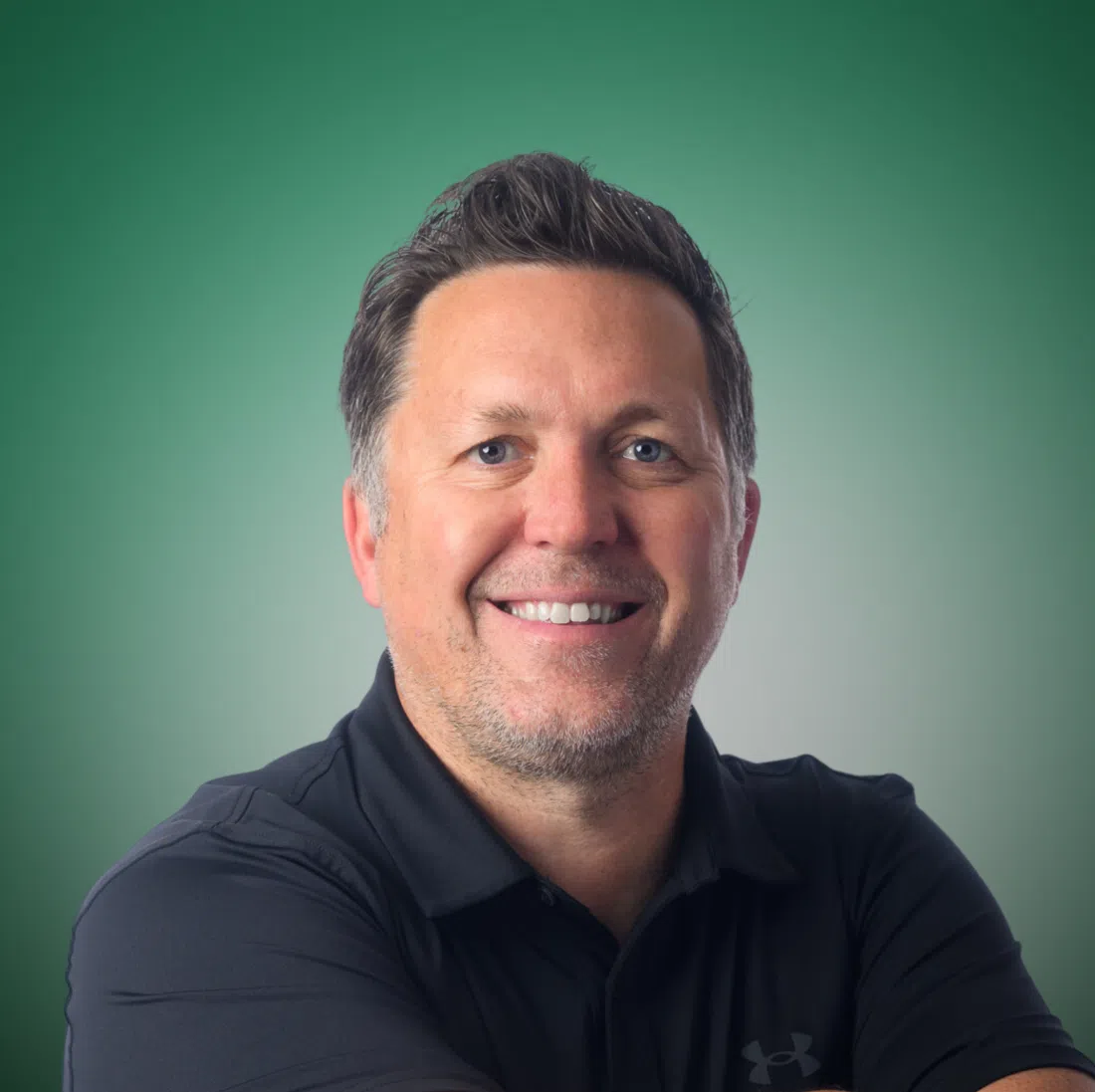LIEPZIG, SASK. — In a remote corner of rural Saskatchewan, an old brick building sits quietly among the trees.
Stained-glass windows catch the light, casting colour onto worn hardwood floors. It’s peaceful here.
From the outside, you might not guess this is a place where lives begin to turn around.
Read More:
- The Bird Lady: Meet the Saskatoon woman rescuing abandoned parrots
- Explore Freba Pottery: Saskatchewan’s honour-system shop on Hwy 16
- The Remarkable Klara Belkin: A cello’s perilous journey to Canada
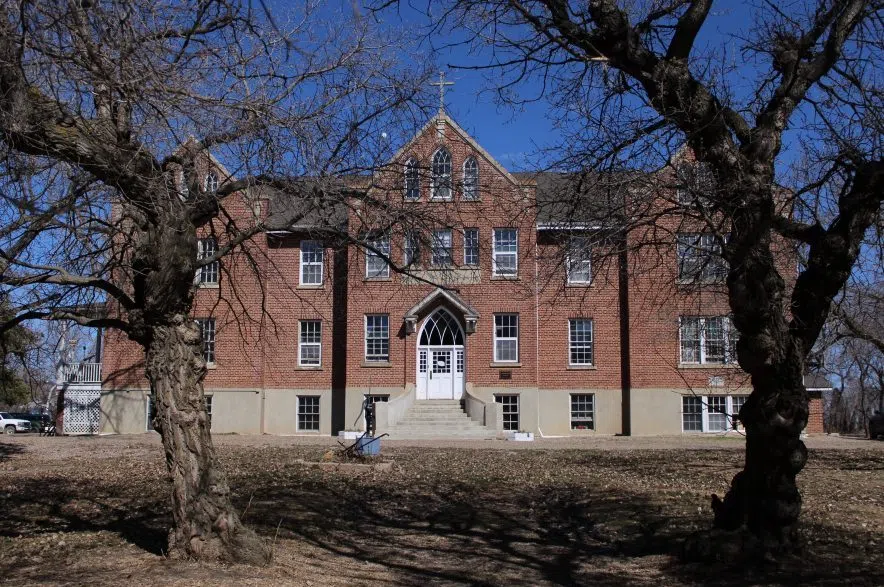
The building that houses Prairie Sky Recovery Centre, in Leipzig, Saskatchewan, has a rich history rooted in education and community service. The facility was originally constructed in 1927 as the Leipzig Convent and Boarding School. (Brittany Caffet/650 CKOM)
Inside, the phone rings. These days it seems like it’s constantly ringing, but it’s always answered with care.
That initial phone call to Prairie Sky Recovery Centre isn’t an easy one to make.
Listen to the story on Behind the Headlines:
CEO Jacqueline Hoffman said she’ll never forget the first time she was the one to pick up the phone.
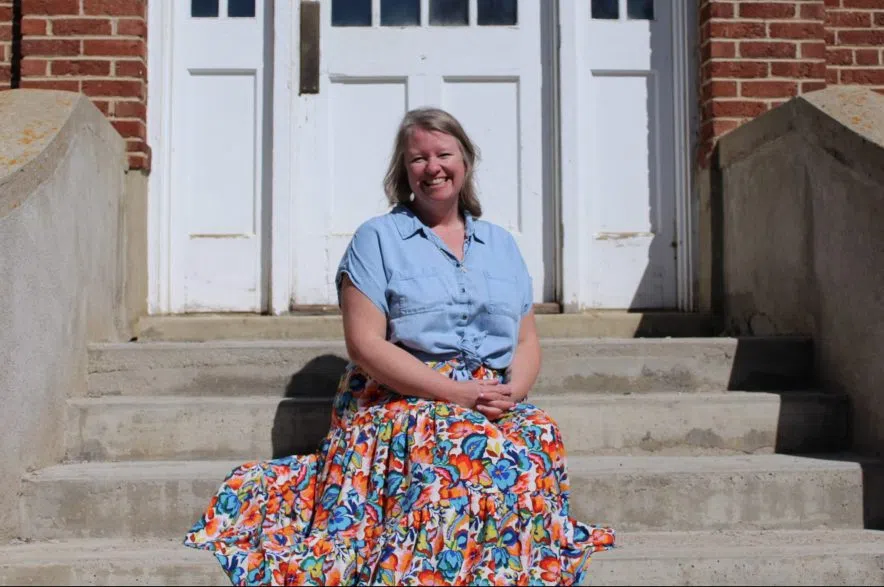
Jacqueline Hoffman now leads Prairie Sky Recovery Centre, carrying forward the vision and compassion of her mother, Ardyth Wilson, who founded the centre to help others find hope in recovery. (Brittany Caffet/650 CKOM)
She had worked alongside her mother for years by then, filing intake forms and helping clients get settled, but she hadn’t been the person on the other end of the phone. Not until that day.
“It was a woman who was trying to get services for her mother,” Hoffman said, recalling that life-altering call in an interview with 650 CKOM. “She was an adult child of an alcoholic. They’d kind of kept it under wraps.”
What struck Hoffman wasn’t just the pain in the caller’s voice — it was how close that story had come to being her own.
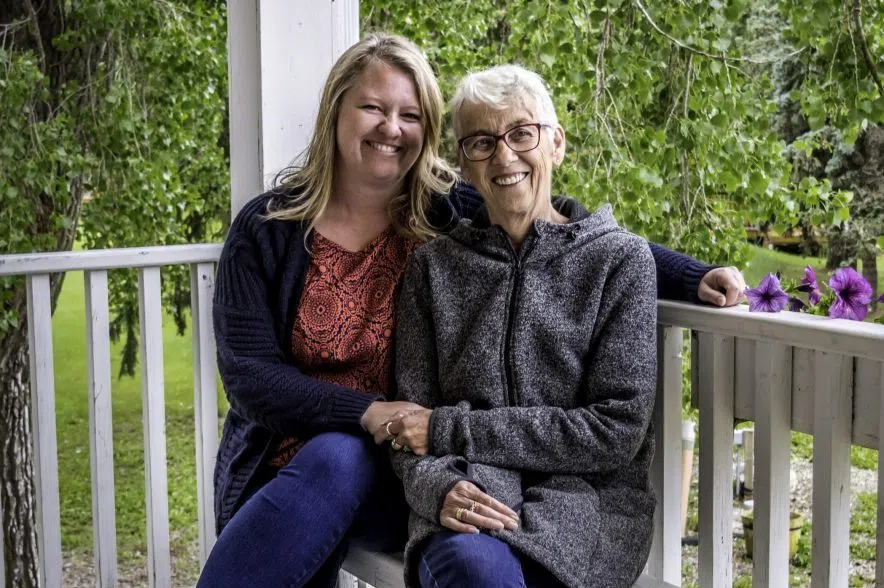
Before her passing in 2023, Ardyth Wilson dedicated her life to helping others find sobriety, building the foundation of the centre her daughter now leads. (Submitted)
“I grew up in my mother’s recovery,” she explained. “I was six when she sobered up. I grew up going to AA meetings and roundups. I had a sober mom who was present. She was there for me. I needed my mom.”
She said that phone call — raw and desperate — put things in sharp focus.
After she hung up, Hoffman walked into her mother’s office, set the phone down and told her: “I can’t do that again.”
Her mom looked at her and said gently: “That’s exactly why you need to.”
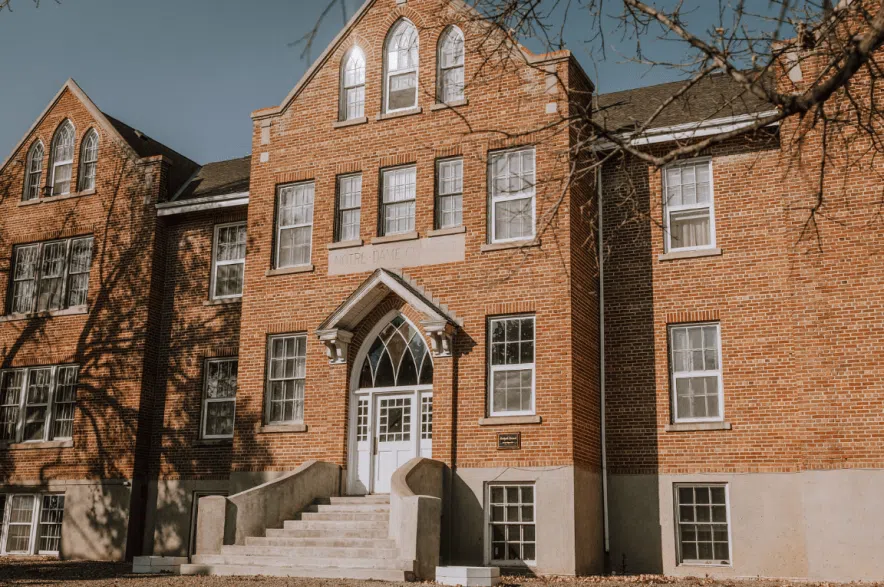
The facility served as both a residence for high school girls and a day school for local boys and girls before closing in 1969. (Submitted)
The house her mother built
Long before Prairie Sky Recovery Centre had its name, it had a purpose. That purpose lived in Ardyth Wilson.
As a longtime member of Alcoholics Anonymous, Wilson spent years doing what she could for people waiting — often desperately — for treatment. She opened her own home to them, housed them, fed them, and helped them through some of their darkest days.
And still, it wasn’t enough.
“She said to herself one day ‘I just need a bigger house,’” Hoffman recalled.
In 2008, a friend pointed Wilson toward a derelict former convent in the tiny village of Leipzig, Saskatchewan.
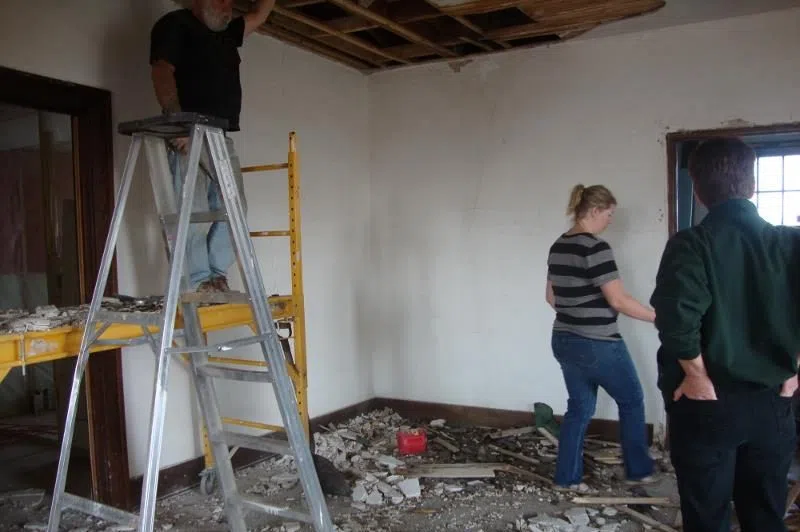
Following the closure of the school in 1969, the building underwent various uses, including serving as a dentist’s office, bakery, and even being purchased by an American group intending to convert it into a hunting lodge. (Submitted)
The windows were boarded up. The rooms were full of debris. But where others might have seen a building too far gone, Wilson saw space, potential and healing.
“She fell in love with the building,” Hoffman said. “And they just started cleaning and scraping paint and trying to make it usable.”
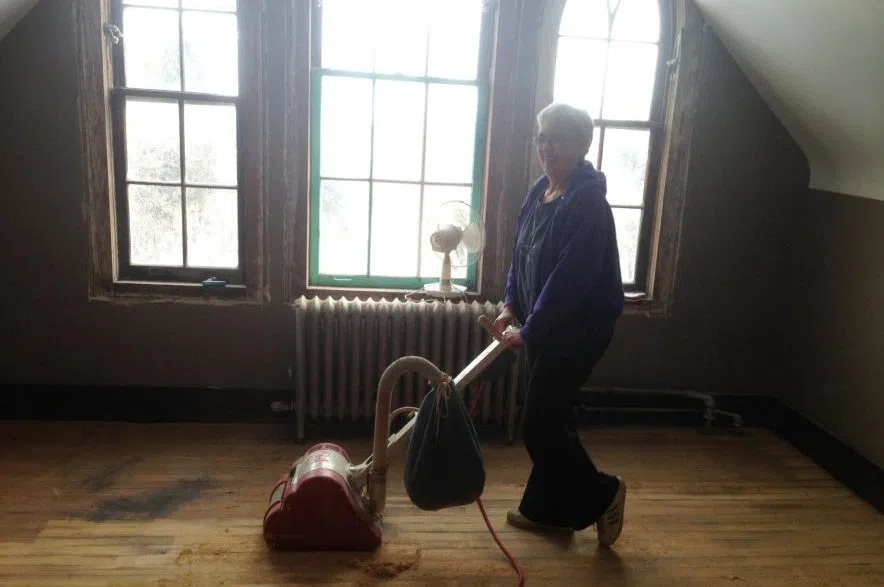
Hoffman’s mother Ardyth Wilson purchased the derelict property in 2008. “They just started cleaning and scraping paint and trying to make it usable,” Hoffman recalled. “And they saw their first client within a couple of weeks.” (Submitted)
It was never meant to be a treatment centre — not at first. Wilson thought she might offer transitional housing, but then the phone started ringing. Soon it became clear: the people calling didn’t need a place to wait. They needed somewhere to start again.
So Wilson made the leap. She started building a program from scratch — one rooted in dignity, community and care.
“She was always so clear to me and my sister,” Hoffman said. “These people are somebody’s somebody. This is somebody’s brother. Somebody’s mother. And they deserve dignity. They deserve respect. No matter what position they find themselves in, they are not to be ignored.”
Years of blood, sweat and tears transformed that broken building into what Prairie Sky Recovery Centre is today: A place where healing happens, as their motto says. Hoffman said that healing starts with being seen, heard and valued.
Before Wilson passed in July 2023, she had celebrated 38 years of sobriety.
“Why am I so passionate about this?” Hoffman said, her voice soft. “This has been my life. This has been my home. This is my mother’s legacy. This is how I stay connected to my mom, and this is what I can do to show my kids that this work is necessary. Worthwhile. And that people deserve love and respect until they’re healthy enough to do that for themselves.”
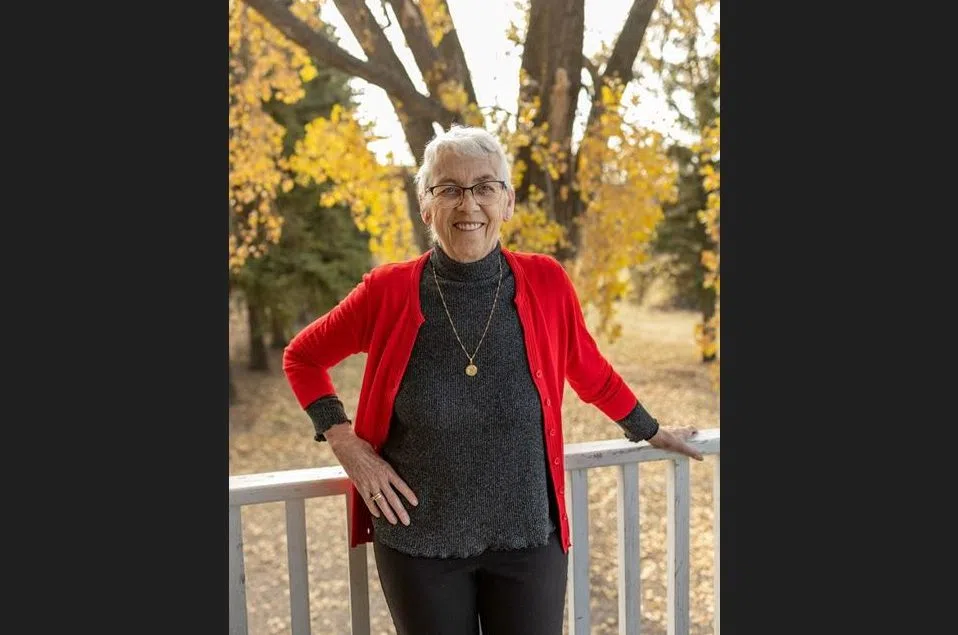
Ardyth Wilson spent decades supporting people in recovery. Her vision and compassion helped transform a derelict convent in Leipzig, Sask. into a place where healing happens. (Submitted)
The work of healing
At Prairie Sky Recovery Centre, the treatment programs run for six or 12 weeks. Clients live on site in the old brick building, and each person who walks through the door is met with food, rest and time — things many of them haven’t had in far too long.
“When they come in, they don’t make eye contact,” Hoffman explained. “They’ll have their hood up, hat down. Their shoulders are slumped. They are absolutely withered. They haven’t been taking care of themselves.”
The work begins gently. Clients are encouraged to eat. To sleep. To breathe.
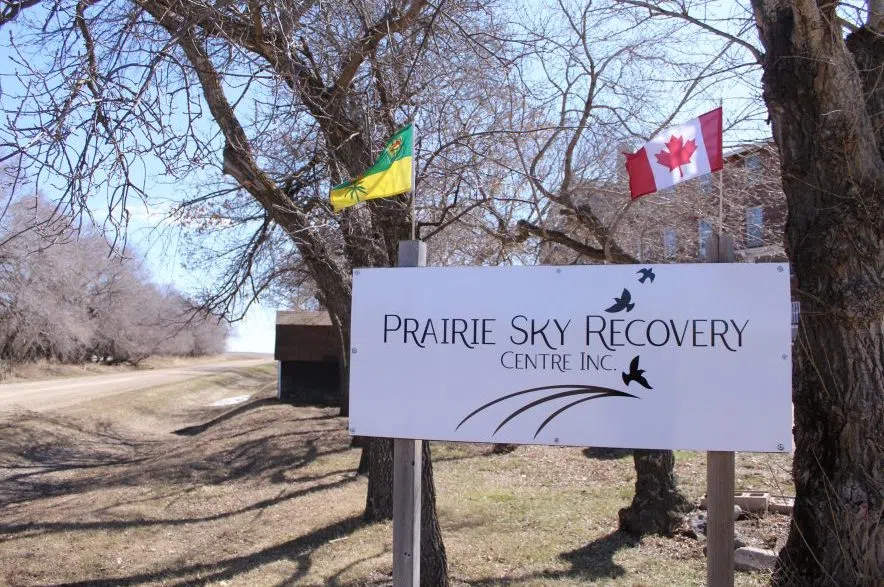
The recover centre was originally called Leipzig Serenity Retreat, but was renamed Prairie Sky Recovery Centre in 2016. (Brittany Caffet/650 CKOM)
Then comes the learning.
The first three weeks are focused on addiction education: brain chemistry, the role of dopamine and serotonin and different support systems like AA, NA and SMART Recovery. But it’s the second half of the program that often becomes the turning point.
“The emotional health and wellness program is what really sets us apart,” Hoffman said proudly. “It’s designed to help them understand concurrent disorders, mental health concerns like depression, anxiety, but also it helps them identify trauma.”
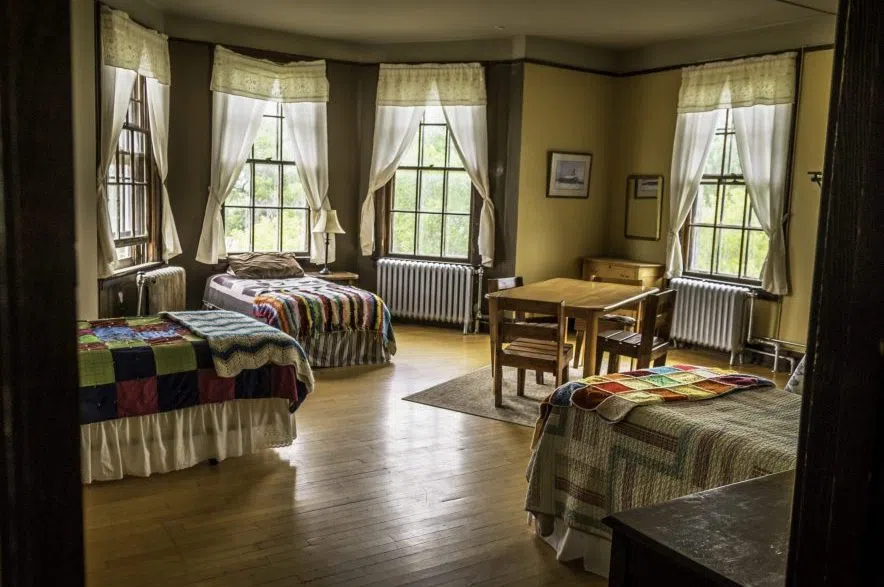
The centre now operates as a 24-bed facility and an eight-bed women’s residence, all situated on six acres of land in rural Saskatchewan. (Submitted)
The application process is simple. No referral is needed and no doctor’s note. Just a phone call.
“We do a pre-treatment assessment over the phone to determine whether or not we would be a good fit for them,” Hoffman said. “We’re able to determine whether or not they need to maybe seek out medical detox prior to arrival.”
Something else happens inside those walls — something that isn’t written into any curriculum. Clients form bonds and help each other.
“Oftentimes the other clients are saying to them, ‘Hey man, it’s gonna get better. Come sit beside me. Let me tell you how this is going to go,’” Hoffman said. “It’s the other clients who are helping them through that first week. Usually by week two they’re starting to feel physically better. Their heads are coming up. Their eyes are getting brighter.”
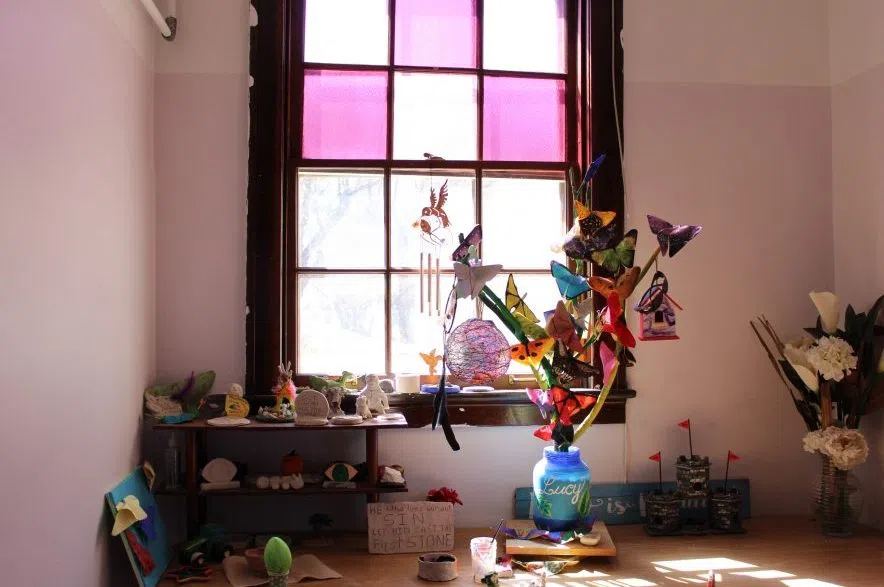
Art plays a central role in healing at Prairie Sky Recovery Centre, where clients can express themselves in a dedicated art room filled with supplies and light filtered through custom stained glass. (Brittany Caffet/650 CKOM)
The graduation ceremonies are some of the most emotional days at Prairie Sky Recovery Centre.
“There’s not a dry eye in the house,” Hoffman said. “They are the person that they used to be. That time frame has given them sobriety that they might not have had in years. Clarity of mind. They’re healthier, they’re brighter… they’ve returned to their bodies, so to speak.”
Not every story ends that way. Some clients relapse, and others leave early. But many come back. They show up at the next graduation ceremony to support someone new. They bring their kids years later, when history begins to repeat. They stay connected.
“The ripple effect of recovery is incredible,” Hoffman explained. “It’s not just the person. It’s the person’s family, children, co-workers, friends. It’s like a stone dropped in a pond; it just has these massive ripple effects.”
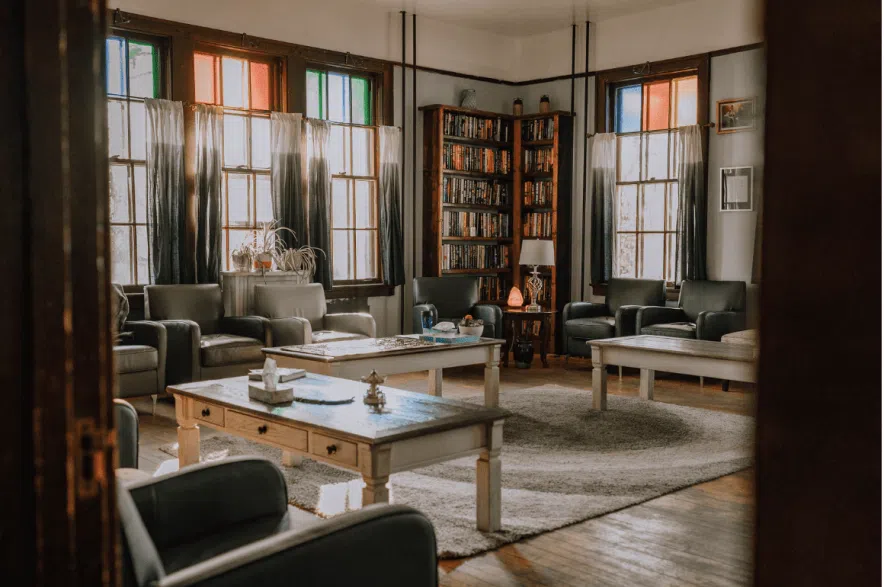
The tea room at Prairie Sky Recovery Centre offers a quiet space for reflection and connection — a comforting pause in the journey toward healing. (Submitted)
A legacy of listening
Years after stepping into her mother’s role as CEO of Prairie Sky Recovery Centre, Hoffman said she still treats every phone call like it’s her first.
It’s not just a formality. It’s a responsibility and a promise.
“So many families hit walls in the provincial system because they want to speak to the person,” Hoffman explained. “And I understand that process, but oftentimes the person in active addiction isn’t going to make that call. It’s the family who’s feeling the fallout.”
When that phone rings — and it rings often — it could be someone’s last sliver of hope. A sibling desperate to help. A parent at the edge of exhaustion. A child holding it all together.
“We tell our staff, take your time on that phone call,” Hoffman said. “They might never come through our door, but we might be the only person who hears them out.”
She doesn’t take that responsibility lightly.
Even now, after years of managing staff, overseeing programming and watching graduates walk out the door transformed, Hoffman said she still feels the weight of that very first call.
It changed her and it set the tone for everything that followed.
“They are hurting, they are sad, they are scared, they’re in crisis,” she said simply. “Somebody has to hear them. Somebody has to answer the phone.”
